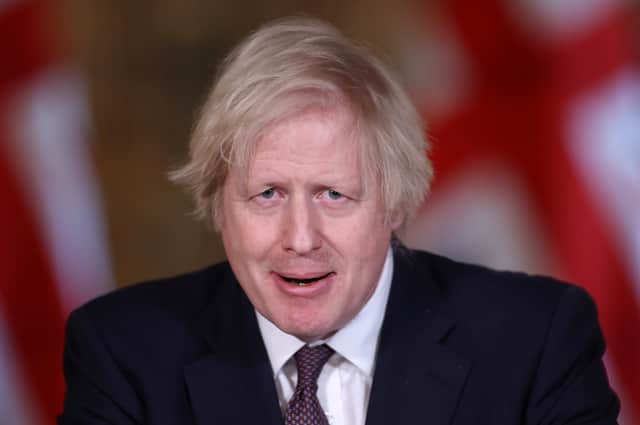The UK is reshaping its foreign policy - including an increase in nuclear weapons


Prime Minister Boris Johnson will today (16 March) unveil the results of the Government’s year long Integrated Review of security, defence, development and foreign policy.
The 100 page document, titled Global Britain in a Competitive Age, is set to lay out plans for the armed forces to adopt the latest in cutting edge technology, such as drones and artificial intelligence, and with a new focus on future battlefields of space and cyber.
Advertisement
Hide AdAdvertisement
Hide AdAccording to the document, it also states that new alliances should be formed within the Indo-Pacific region, as ministers feel that it is increasingly becoming the “geopolitical centre of the world”.
‘The UK’s place in the world’
Johnson is expected to argue that while Nato remains the bedrock of UK security in the Euro-Atlantic region, the country cannot continue to rely on an “increasingly outdated international” to protect its interests.
He is also expected to say that the UK needs to use “all the tools at our disposal” to ensure a world where democracies can still flourish.
According to a statement from the Government, the Prime Minister is expected to tell MPs: “I am profoundly optimistic about the UK’s place in the world and our ability to seize the opportunities ahead.
Advertisement
Hide Ad“The ingenuity of our citizens and the strength of our Union will combine with our international partnerships, modernised Armed Forces and a new green agenda, enabling us to look forward with confidence as we shape the world of the future.”
‘Ultimate insurance policy’
Advertisement
Hide AdThe review also paves the way for an increase in nuclear warheads in the UK.
Speaking to BBC Radio 4’s Today programme, Foreign Secretary Dominic Raab said that more nuclear warheads could be required as part of the Integrated Review, as they represented “the ultimate insurance policy” against global threats.
When asked why the Government would want to increase the amount it already has, Raab said: “Because over time as the circumstances change and the threats change, we need to maintain a minimum credible level of deterrent.
Advertisement
Hide Ad“Why? Because it’s the ultimate guarantee, the ultimate insurance policy against the worst threat from hostile states.”
‘Credible deterrents against threats’
The Foreign Secretary also spoke to BBC Radio Scotland where he was asked whether placing more warheads on the Clyde and the Gare Loch strengthens the Union, to which he replied: “I think it’s important that we maintain a minimal credible deterrent against the very worst threats that we face.”
Advertisement
Hide AdInterviewer Gary Robertson said: “The report says you are going to list the cap on the number of Trident nuclear warheads that the UK can stockpile by more than 40 per cent, so there’s every prospect of more nuclear warheads, not maintenance.”
Raab said: “That’s not quite right, it is true and the details of this will be published this afternoon, but the policy is to maintain a minimal credible deterrent, so the question is how many, what level of warheads we need in order to secure that.”
Advertisement
Hide AdWhen asked why the cap would be lifted if the number wouldn’t be increased, he said: “The question is what minimum level of credible deterrent you need and the secondary question is what’s the means to that end, how many warheads you’ll need.”